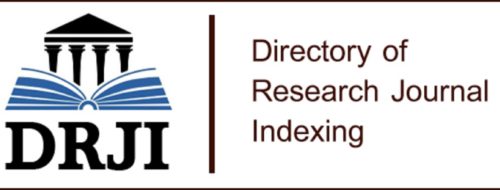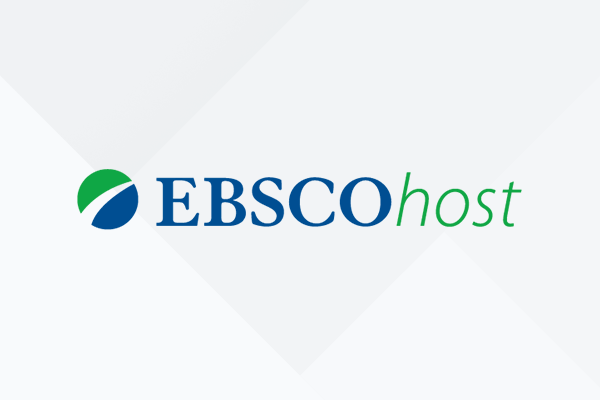Öz
Bu çalışma, annelerin aile yaşam döngüsü içerisinde değişen satın alma ve tüketim
davranışlarını keşfetmek ve bu süreçte yaşadıkları deneyimlerini ortaya çıkarmak amacıyla yapılmıştır.
Bu kapsamda, annelerin çevreci ürünlere karşı bakış açıları, ideal ekolojik anne profili algıları ve
ekolojik anne olmaya çalışırken yaşadıkları sıkıntılar incelenmiştir. Araştırma, yüksek eğitim
seviyesine sahip, çalışan annelerden oluşan katılımcılar ile derinlemesine görüşmeler ve odak grup
görüşmeleri yapılarak gerçekleştirilmiştir. Katılımcı annelerin ekolojik duyarlılığa sahip olmalarına
rağmen, satın alma ve tüketim odaklı davranışlarında çevre duyarlılıklarının düşük olabildikleri
saptanmış ve bu davranışlarının altındaki sebepler keşfedilmeye çalışılmıştır. Çalışmanın bulgularına
göre katılımcı annelerin ekolojik duyarlılıkları paketli gıda kullanmama, çocuklara özel doğal, organik
içerikli ürün satın alma, yerli üreticileri tercih etme, kimyasallara ve hijyene karşı yoğun hassasiyet ile
vegan ürünlere yönelme olarak ortaya çıkarken, ekolojik anneliğin zorlayıcı tarafları ise ekolojik
tüketime dair doğru bilgiye ulaşabilme zorluğu, zaman sıkıntısı, yerli ve doğal üreticilere ulaşma
zorluğu ve doğal içerikli ürünlerin yüksek fiyatlandırması olarak ifade edilmiştir. Katılımcılar ideal
annelik kavramının göreceli olduğuna dikkat çekerken, 100% ekolojik olma ile ilişkili olmadığını da
vurgulamışlardır. Çalışma bulgularının, yeşil tüketici anneleri hedef alan işletmelerin pazarlama
faaliyetlerine destek vereceği umulmaktadır.
Anahtar Kelimeler
Kaynakça
- Alkaya, A., Çoban, S., Tehci, A. ve Ersoy, Y. (2016). Çevresel duyarlılığın yeşil ürün satın alma davranışına etkisi: Ordu Üniversitesi örneği. Erciyes Üniversitesi İktisadi ve İdari Bilimler Fakültesi Dergisi, Sayı:47, 121-134.
- Atkinson, L. (2014). Green moms: the social construction of a green mothering identity via environmental advertising appeals. Consumption Markets and Culture, 17(6), 553-572, http://dx.doi.org/10.1080/10253866.2013.879817.
- Balderjahn, I. (1988). Personality variables and environmental attitudes as predictors of ecologically responsible consumption patterns. Journal of Business Research, 17(1), 51- 56.
- Barendregt, B. ve Jaffe, R. (Eds.). (2014). Green consumption: the global rise of ecochic. Bloomsbury Publishing.
- Cairns, K., DeLaat, K., Johnston, J. ve Baumann, S. (2014). The caring committed eco-mom: consumption ideals and lived realities of Toronto mothers. Green consumption: the global rise of eco-chic, 100-14.
- Cairns, K., Johnston, J. ve MacKendrick, N. (2013). Feeding the ‘organic child’: Mothering through ethical consumption. Journal of consumer culture, 13(2), 97-118.
- Cohen, M. ve Murphy, J. (2001). Exploring sustainable consumption. Environmental Policy and the Social Sciences, New Jersey Institute of Technology: Newark, NJ, USA.
- Çabuk, S., Nakiboğlu, A. G. B. ve Keleş, C. (2008). Tüketicilerin yeşil ürün satın alma davranışlarının sosyo demografik değişkenler açısından incelenmesi. Çukurova Üniversitesi Sosyal Bilimler Enstitüsü Dergisi, 17(1), 85-102.
- Çokluk, Ö., Yılmaz, K., ve Oğuz, E. (2011). Nitel bir görüşme yöntemi: Odak grup görüşmesi. Kuramsal Eğitimbilim Dergisi, 4(1), 95-107.
- Davidson, D. J. ve Freudenburg, W. R. (1996). Gender and environmental risk concerns: A review and analysis of available research. Environment and behavior, 28(3), 302-339.
- Dietz, T., Kalof, L. ve Stern, P. C. (2002). Gender, values, and environmentalism. Social science quarterly, 83(1), 353-364.
- Douglas, S. ve Michaels, M. (2005). The mommy myth: The idealization of motherhood and how it has undermined all women. Simon and Schuster.
- Dündar, Ş. (2017). Bilinçli tüketicilik ile ilgili anne-baba rol model davranışlarının, anne-baba iletişiminin ve sosyal bilgiler dersinin çocukların bilinçli tüketiciler olarak sosyalleşmelerindeki etkisi. Mersin Üniversitesi Eğitim Fakültesi Dergisi, 13(2),726-743.
- Edmunds, H. (2000). The Focus Group Research Handbook. New York: McGrawHill. Fisk, G. (1973). Criteria for a theory of responsible consumption. Journal of marketing, 37(2), 24-31.
- Geiger, S. M., Fischer, D. ve Schrader, U. (2018). Measuring what matters in sustainable consumption: an integrative framework for the selection of relevant behaviors. Sustainable Development, 26(1), 18-33.
- Gilligan, C. (1982). In a different voice: Psychological theory and women’s development. Cam- bridge, MA: Harvard University Press, Massachusetts, 24-39.
- Hansla, A. (2011). Value orientation, awareness of consequences, and environmental concern. Department of Psychology; Psykologiska institutionen.
- Hutner, H. (2011). The Birth of an Eco-Mom: Cancer, Feminism and the Envionrment. Journal of the Motherhood Initiative, 2(1), 37-51.
- Jackson, T., ve Michaelis, L. (2003). Policies for sustainable consumption. Sustainable Development Commission, London Jørgensen, M. S. ve Jensen, C. L. (2012). The shaping of environmental impacts from
- Danish production and consumption of clothing. Ecological Economics, 83, 164-173.
- Karalar, R. ve Kiracı, H. (2010). Bireysel değerlerin sürdürülebilir tüketim davranışı üzerindeki etkisini belirlemeye yönelik öğretmenler üzerinde bir araştırma. İşletme Araştırmaları Dergisi, 2(2), 79-106.
- Knibb, J.N. and Taylor, K. (2017), Living “light green”: the limits and lived experiences of green motherhood. Qualitative Market Research, 20(3), 370- 389. https://doi.org/10.1108/QMR-06-2016-0049
- Koca, E. ve Çağman, D. S. (2012). Kullanılmayan giysilerin değerlendirilmesinde çalışan kadınların ekolojik yaklaşımları. Selçuk Üniversitesi Sosyal Bilimler Enstitüsü Dergisi, 27, 159-169.
- Krueger, R.A. (1994). Focus Groups: A Practical Guide For Applied Research. London: SAGE.
- Kumar, P. ve Ghodeswar, B.M. (2015). Factors affecting consumers’ green product purchase decisions. Marketing Intelligence & Planning, 33(3), 330-347. https://doi.org/10.1108/MIP-03-2014-0068
- Kuşat, N. (2013). Yeşil sürdürülebı̇lı̇rlı̇k ı̇çı̇n yeşı̇l ekonomı̇: Avantaj ve dezavantajları-Türkı̇ye ı̇ncelemesı̇. Journal of Yasar University, 29(8),
Öz
This study aims to explore the changes in women’s purchasing and consumption behaviors
and to reveal their experiences while passing through different family life cycle stages. In this context,
women’s perspectives on ecologic products are investigated. The research is conducted among working
moms with higher levels of education, by in-depth interviews and a focus group interview. The study
discovers that although moms are concerned about the environment, they may not always possess
environmentally friendly consumption behaviors. The results of the study put forth the consumption
behaviors of moms as; not using packaged food, purchasing products with natural and organic
ingredients, preferring local producers, increasing concern on hygiene and chemical products and vegan
product purchases. The barriers behind becoming an ecological mom are stated as difficulty in reaching
right product information and local producers, lack of time and over pricing of natural products. The
participants view ideal motherhood as relative and do not correlate it with behaving 100% ecological.
The findings of the study will give support to the marketing promotion plans of firms targeting
ecological moms.
Anahtar Kelimeler
Kaynakça
- Alkaya, A., Çoban, S., Tehci, A. ve Ersoy, Y. (2016). Çevresel duyarlılığın yeşil ürün satın alma davranışına etkisi: Ordu Üniversitesi örneği. Erciyes Üniversitesi İktisadi ve İdari Bilimler Fakültesi Dergisi, Sayı:47, 121-134.
- Atkinson, L. (2014). Green moms: the social construction of a green mothering identity via environmental advertising appeals. Consumption Markets and Culture, 17(6), 553-572, http://dx.doi.org/10.1080/10253866.2013.879817.
- Balderjahn, I. (1988). Personality variables and environmental attitudes as predictors of ecologically responsible consumption patterns. Journal of Business Research, 17(1), 51- 56.
- Barendregt, B. ve Jaffe, R. (Eds.). (2014). Green consumption: the global rise of ecochic. Bloomsbury Publishing.
- Cairns, K., DeLaat, K., Johnston, J. ve Baumann, S. (2014). The caring committed eco-mom: consumption ideals and lived realities of Toronto mothers. Green consumption: the global rise of eco-chic, 100-14.
- Cairns, K., Johnston, J. ve MacKendrick, N. (2013). Feeding the ‘organic child’: Mothering through ethical consumption. Journal of consumer culture, 13(2), 97-118.
- Cohen, M. ve Murphy, J. (2001). Exploring sustainable consumption. Environmental Policy and the Social Sciences, New Jersey Institute of Technology: Newark, NJ, USA.
- Çabuk, S., Nakiboğlu, A. G. B. ve Keleş, C. (2008). Tüketicilerin yeşil ürün satın alma davranışlarının sosyo demografik değişkenler açısından incelenmesi. Çukurova Üniversitesi Sosyal Bilimler Enstitüsü Dergisi, 17(1), 85-102.
- Çokluk, Ö., Yılmaz, K., ve Oğuz, E. (2011). Nitel bir görüşme yöntemi: Odak grup görüşmesi. Kuramsal Eğitimbilim Dergisi, 4(1), 95-107.
- Davidson, D. J. ve Freudenburg, W. R. (1996). Gender and environmental risk concerns: A review and analysis of available research. Environment and behavior, 28(3), 302-339.
- Dietz, T., Kalof, L. ve Stern, P. C. (2002). Gender, values, and environmentalism. Social science quarterly, 83(1), 353-364.
- Douglas, S. ve Michaels, M. (2005). The mommy myth: The idealization of motherhood and how it has undermined all women. Simon and Schuster.
- Dündar, Ş. (2017). Bilinçli tüketicilik ile ilgili anne-baba rol model davranışlarının, anne-baba iletişiminin ve sosyal bilgiler dersinin çocukların bilinçli tüketiciler olarak sosyalleşmelerindeki etkisi. Mersin Üniversitesi Eğitim Fakültesi Dergisi, 13(2),726-743.
- Edmunds, H. (2000). The Focus Group Research Handbook. New York: McGrawHill. Fisk, G. (1973). Criteria for a theory of responsible consumption. Journal of marketing, 37(2), 24-31.
- Geiger, S. M., Fischer, D. ve Schrader, U. (2018). Measuring what matters in sustainable consumption: an integrative framework for the selection of relevant behaviors. Sustainable Development, 26(1), 18-33.
- Gilligan, C. (1982). In a different voice: Psychological theory and women’s development. Cam- bridge, MA: Harvard University Press, Massachusetts, 24-39.
- Hansla, A. (2011). Value orientation, awareness of consequences, and environmental concern. Department of Psychology; Psykologiska institutionen.
- Hutner, H. (2011). The Birth of an Eco-Mom: Cancer, Feminism and the Envionrment. Journal of the Motherhood Initiative, 2(1), 37-51.
- Jackson, T., ve Michaelis, L. (2003). Policies for sustainable consumption. Sustainable Development Commission, London Jørgensen, M. S. ve Jensen, C. L. (2012). The shaping of environmental impacts from
- Danish production and consumption of clothing. Ecological Economics, 83, 164-173.
- Karalar, R. ve Kiracı, H. (2010). Bireysel değerlerin sürdürülebilir tüketim davranışı üzerindeki etkisini belirlemeye yönelik öğretmenler üzerinde bir araştırma. İşletme Araştırmaları Dergisi, 2(2), 79-106.
- Knibb, J.N. and Taylor, K. (2017), Living “light green”: the limits and lived experiences of green motherhood. Qualitative Market Research, 20(3), 370- 389. https://doi.org/10.1108/QMR-06-2016-0049
- Koca, E. ve Çağman, D. S. (2012). Kullanılmayan giysilerin değerlendirilmesinde çalışan kadınların ekolojik yaklaşımları. Selçuk Üniversitesi Sosyal Bilimler Enstitüsü Dergisi, 27, 159-169.
- Krueger, R.A. (1994). Focus Groups: A Practical Guide For Applied Research. London: SAGE.
- Kumar, P. ve Ghodeswar, B.M. (2015). Factors affecting consumers’ green product purchase decisions. Marketing Intelligence & Planning, 33(3), 330-347. https://doi.org/10.1108/MIP-03-2014-0068
- Kuşat, N. (2013). Yeşil sürdürülebı̇lı̇rlı̇k ı̇çı̇n yeşı̇l ekonomı̇: Avantaj ve dezavantajları-Türkı̇ye ı̇ncelemesı̇. Journal of Yasar University, 29(8),
Ayrıntılar
| Birincil Dil | Türkçe |
|---|---|
| Bölüm | Makaleler |
| Yazarlar | |
| Yayımlanma Tarihi | 25 Aralık 2020 |
| Yayımlandığı Sayı | Yıl 2020 |
Cited By
BEBEĞİMİN KONFORU İÇİN EN İYİ MARKAYI SEÇMELİYİM! ANNELERİN KARAR VERME TARZLARI ÜZERİNE BİR ARAŞTIRMA
Maarif Mektepleri Uluslararası Sosyal ve Beşeri Bilimler Dergisi
https://doi.org/10.47155/mamusbbd.1061101













ERÜ İktisadi ve İdari Bilimler Fakültesi Dergisi 2021 | iibfdergi@erciyes.edu.tr
Bu eser Creative Commons Atıf-Gayri Ticari-Türetilemez 4.0 Uluslararası Lisansı ile lisanslanmıştır.


